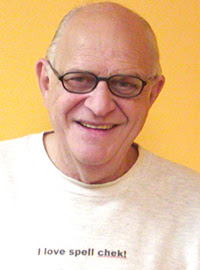By Dominique Paul Noth
As national surveys keep showing, citizens absorbed by commercial television’s endless crime shows tend to have a more negative view of their own personal safety, particularly in urban communities. The images they believe in are rife with dark alley gangs often portrayed as black thugs threatening those nice white citizens who are the clean-cut center of our democracy – at least in this corner of TV land.
I think the stereotypes are even worse in Wisconsin – at least judging by the millions of dollars in TV ads on cable and on the Internet funded by Ron Johnson and Tim Michels, Republican candidates who have a lot more personal wealth and PACs to throw around than their opponents.
Judging by recent polls – Johnson has climbed eight points to nip ahead of Mandela Barnes where a month ago he was seven points behind – the slimy crime ads succeed in something more than reminding us, as polls often do, how fickle are the public’s opinions. These ugly ads appeal to the darkest regions of the human brain by emphasizing shadows and subtly dimmer lighting. They may obviously be as they have been identified for years as “political advertisements that blatantly stoke racial fears and stereotypes,” but they work.
They did for the first President Bush in that still notorious “Willie Horton” ad that tied Democratic opponent Michael Dukakis to a convicted black rapist. They worked most prominently in Wisconsin in 2008 when buffoon Michael Gableman beat the only black elected to the state’s highest court by juxtaposing Louis Butler’s image with a black rapist that Justice Louis Butler had nothing to do with the release of.
(Gableman was a laughingstock for 10 years on the high court, but he returned and even doubled down on his buffoonery – so extreme about Biden’s election win that his fellow Republicans have been busy trying to disown him and justify the million dollars taxpayers spent on his “investigation.”)
There was always a subliminal visual appeal to these ads that stay just slightly to one side of legal consequences. Gableman was actually brought up on legal charges of exploitation, but since he was one of the votes in the high court monitoring role, he escaped judgment by a 3-3 tie among the other members.
In Johnson’s ads against Barnes – unavoidable even on MSNBC and YouTube, so heavy is the ad expenditure – they feature every ugly image of Barnes’ longer beard as opposed to the well-trimmed one he has today.
They blur the lighting and the facial images as if they have discovered someone lurking in doorways surrounded by graffiti, whose head moves in a jerky motion as misshapen headlines and phrases are painted behind him. They pull every misleading quote by Barnes about defunding the police or how he supports (as well he should) the progressive side of the Democratic Party -- despite every clear Barnes in-context explanation of what he said.
Now, progressive though I may be, I did worry last year of how many Democrats were caught up in the understandable George Floyd protests and hung out with the “defund the police” crowd. There was an understandable repulsion at how many black citizens has been shot by police.
That anger caught up many moderates including Republicans – until cooler heads better defined the movement as ”refund the police” to better recognize mental illness and social needs, which I really can’t find anyone opposing. But those damned images and isolated old quotes still flourish on TV as if black skin is still affiliated with dark streets, as if muggings and nightclub shootings by every race take place in the daylight.
Tim Michels, running against Gov. Tony Evers, has tried similar crime ads but Evers has such a mild-mannered image and sensible policies that these ads backfire. He tries to blame Evers for taking money away from police forces while Evers actually proposed an increase that was shot down by a GOP legislature!
But Wisconsin voters are still so weird on this issue that Michels poll numbers have also gone up slightly, basically meaning that the Democrats cannot relax the pressure in the last months, and we really won’t know what will happen until Nov. 8.
Meanwhile we have to recognize that in terms of political ads TV is still segregated, thanks to how local ads are inserted into what we think are national programs or national Internet services.
Folks in other states do not see the repellent GOP ads we get in Wisconsin just as we don’t see the senate and gubernatorial ads from other states where the Democrats are now gaining in terms of the Senate particularly and the House in general.
You could argue that this is because the big GOP money is more scattered or hasn’t yet landed full bore in Ohio and Pennsylvania (where Democratic senate candidates Tim Ryan and John Fettermen are ahead). But it could also be that Wisconsin’s more extremely split citizenry are more vulnerable to the TV commercials and the generalities about crime, punishment and blackness than their national counterparts.
Personal Note: Maybe the visitors are mainly law students fascinated as I am by what Wisconsin lost in 2008 – and may be restored again in 2023 if Janet Protasiewicz, is elected to the high court – but I am still getting visitors to a 2015 article I wrote (rare for an old political piece to still get traffic) about Louis Butler.


No comments:
Post a Comment